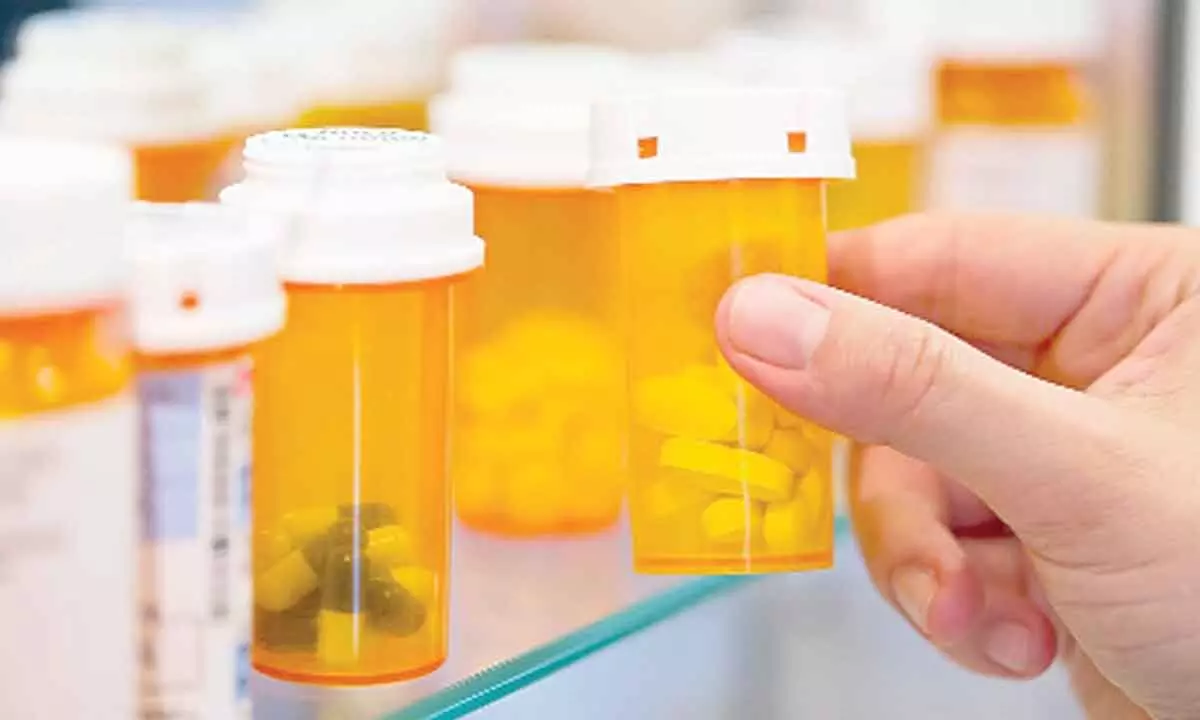Domestic mfg of key pharma ingredients need of the hour
India has been critically dependent on Chinese imports for basic raw materials that are used to produce some of the essential medicines
image for illustrative purpose

Given the emerging grim geo-political situation in the region with China fuming fire over the visit of US Speaker Nancy Pelosi to Taiwan, it has all the more become urgent for the Indian government to take more and more proactive measures to end the import dependency on China for raw materials critical for producing life-saving medicines. There is urgent need to promote domestic manufacturing of life-saving medicines and its raw materials as the Sino-Indian border relations have also been deteriorating for the last two years.
Though the Indian government has been reaching out to the Chinese authorities to end the border skirmishes for the last two years, China has been blowing hot and cold on the issue. If the intermittent border skirmishes between India and China in the Ladakh region reach a flashpoint and as a retaliatory measure China decides to stop export of active pharmaceutical ingredients (APIs) and other raw materials to India, the result would be disastrous for the country as the industry does not have any alternate sources to procure these basic raw materials to manufacture life-saving medicines.
This would mean that production of several essential and life-saving drugs required within the country will be in trouble. Though the country has, over the years, adorned the epithet of 'the pharmacy of the world' as it has been exporting life-saving medicines to the entire world, including developed nations like the US, the UK and other European nations, India has been critically dependent on Chinese imports for basic raw materials that are used to produce some of the essential medicines.
India should now go the whole hog to scale up domestic manufacturing of pharmaceutical products, especially the essential life-saving drugs. It is a fact that the Indian government is seized of the gravity of the situation. It is clear from the that for making the country self-reliant in the pharma sector, the Department of Pharmaceuticals (DoP), in consultation with NITI Aayog, had come out with a notification in July, 2020 for Rs 3,000 crore bulk drug parks' promotion scheme and Rs 6,940 crore production linked incentive (PLI) scheme for promotion of domestic manufacturing of critical key starting materials (KSMs), drug intermediates (DIs) and APIs in India.
Of course, the government has taken a welcome step as it is intended to restore the Indian API Industry's past glory. It would be worthwhile to mention here that till two decades ago, the country has been producing most of the APIs required in the country and even exporting a major part of the same to Europe and the US. But, the high cost of production because of comparatively low scale of operations and higher input costs rendered the domestic API production economically unviable. And stringent environmental regulations added fuel to the fire, forcing the pharma companies to turn to China which emerged as a producer of cheap APIs with huge capacities and lower cost of production.
The gravity of the situation can be gauged from the fact that the Department-related Parliamentary Standing Committee for the Union Ministry of Chemicals and Fertilisers had recently asked the DoP to conduct an in depth study of various concessions being provided by China to its bulk drug industry and to initiate further measures on war footing to address the drug security issues related to overdependence on imported raw materials for pharmaceutical industry in the country. It is sure that the Indian government has provided a conducive policy environment to strengthen the pharma and medical device ecosystems in the country.
It is sure that the Covid-19 outbreak and the subsequent disruption in supply of APIs from China to India has finally made the alarm bell ringing and has woken up the Indian government from its self-imposed slumber on framing a conducive policy on APIs to end the country's over-dependence on China for APIs. By introducing the PLI scheme and other measures, the Indian government wanted to end the scenario of dependence on China for critical pharma raw materials. Ultimately, the Indian government seems to have understood the reality that domestic manufacturing needs to be scaled up if the country wants to dominate the world in pharma manufacturing and export. Better late than never, the government's initiatives are definitely a right step in this direction as it can restore the Indian API industry's past glory if the scheme is implemented in letter and spirit.
(The author is freelance journalist with varied experience in different fields)

